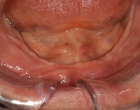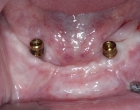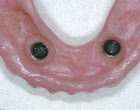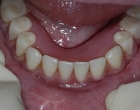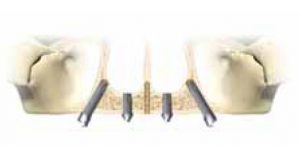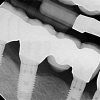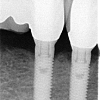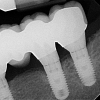There are several treatment options for dental implants for dentures based on your desire and needs. You may choose between a fixed or removable prosthesis, each requiring a certain number of implants and planning. Following implant placement, you may continue using your existing denture while the implants are healing. In some instances, an immediate implant-supported denture may be placed providing patients with teeth on the same day (Teeth-in-A-Day).
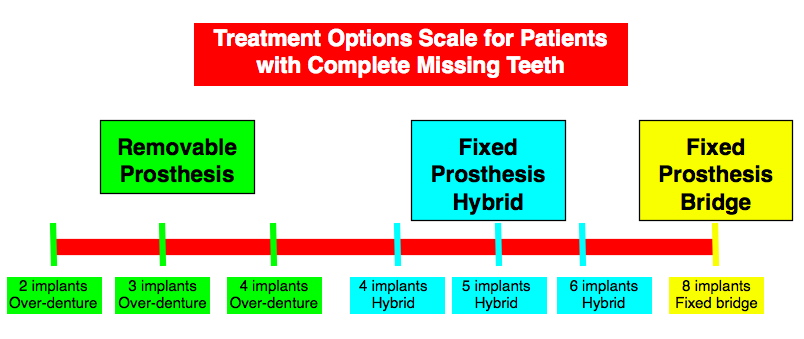
See examples for each treatment option.
Removable Prosthesis Options (Overdentures):
In this scenario, the prosthesis is supported by implants, but is easily removable by the patient. Two, three, or four implants are adequate for a removable overdenture. The more implants, the better the retention and stability of the denture. Overdentures with four implants are the most common option.
- Two Implants: This is the simplest and minimum number of implants for support of an overdenture. You will have great denture retention and can eat quite comfortably.

- Four Implants: This provides better support for your removable overdenture. Having four implants allows less denture extension, or flanges, and increases comfort dramatically. In some cases, a fixed prosthesis may be possible with four implants.
Advantages of a removable prosthesis:
- Fewer implants are necessary
- Fabrication of overdenture is easier and less costly
- Provides good stability
- Patient can eat most foods comfortably
- Repair or modification is relatively less inexpensive
Disadvantages of a removable prosthesis
- The removable denture is not tolerated well by all patients.
- There is still a denture flange that extends into the cheek or roof of mouth, therefore possibly uncomfortable for some patients. The flange is important in support and stability of the denture, even with implants.
- With four implants, the flanges may be reduced to make it more comfortable.
- With the two implant option, the denture may tilt slightly when biting into food.
Fixed Prosthesis Options:
For patients who don’t want dentures that come out, there is the fixed option. This approach allows the prosthesis to be fixed to the implants and can only be removed by the dentist. They are designed to allow easy cleaning and maintenance.
- All-on-4: With this options, a fixed prosthesis is supported by four implants. This can be used in patients with significant bone loss in the back of their jaws. Implants are positioned in a way that does not require bone grafting.
- Five-Six Implants: This is ideal for a fixed-hybrid prosthesis. This is an overdenture that has a metal sub-structure and is fixated to the implants. The prosthesis can be removed only by your dentist, if necessary. This eliminates denture extensions or flanges and feels more natural.
- Eight Implants: This is indicated for a fixed bridge. This prosthesis is made of porcelain or other ceramics and is supported by implants via screws or cement.
Advantages of fixed prosthesis:
- More closely resembles the feeling of natural teeth.
- Because it is completely supported by implants, no denture flanges are necessary therefore making it more comfortable
- Extremely stable so any type of food can be chewed easily
- Easily cleaned
Disadvantages of fixed prosthesis:
- More complex designs, requiring possibly more appointments
- Relatively more costly than a removable prosthesis
